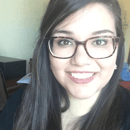One of the coziest things about fall is curling up inside with a drink, a blanket and a good book. As a reader, I know how easy it can be to keep reading the same kinds of stories and especially the same voices. 2018 has been the year of feminism (a bright spot in otherwise a dumpster fire of a year), and reading female voices and thinking about the female experience is absolutely worth the effort. Here are some female authors, both classic and contemporary, that are very worth your while.
1. Jane Austen
Considered a proto-feminist, Austen can be overlooked as sappy period romance (which is awesome!!), but she is a wickedly clever and complex writer. Yes, her novels end with heterosexual marriages, but the romance is only a single facet of her work. Austen writes very incisive and insightful social criticism and is very gifted with bringing characters to life. If you’re in the mood for a longer novel, try Emma, which is about a beautiful, charming girl with an unfortunate tendency to give too much advice. For a shorter read, Pride and Prejudice is a classic story about first impressions and how opposites can attract in unlikely circumstances.
2. Lauren Groff
Recently a National Book Award finalist, Lauren Groff has written two novels and a collection of short stories. These are lyrical, lovely pieces about people in circumstances that shift around them unexpectedly. There is so much emotional complexity and beauty in her novels that I found them difficult to put down. Florida is currently in the running for the National Book Award, but Fates and Furies was her breakout novel, and it is stunning in every sense. If you like short stories, Delicate Edible Birds is excellent and shows off her style and creativity just as well.
3. Jeannette Winterson
Jeannette Winterson is a British author, and much of her writing deals with sexuality and gender in fascinating ways. She is a lovely writer, and her fiction focuses on strong, rich female characters who find themselves and their ways in confusing places. A lot of her work deals with queerness and how to come to terms with identity in a way that is very relevant to many women today. She also writes beautiful essays about art, literature and aesthetics that are very worth reading. For a novel, try The Passion, a fabulist novel set in Renaissance Venice, full of magic and mystery. If you feel intrigued by art essays, Art Objects: Essays on Ecstasy and Effrontery is short but very complex, and I kept thinking about ideas from the essays for weeks after I had finished reading.
4. Donna Tartt
You may have heard of Donna Tartt, as she wrote The Goldfinch, which approximately everyone was saying they were reading a few years ago. Tartt’s novels are uniformly quite long but brilliantly textured and lifelike. Her writing is steeped in art and literature, which I love, and she has consistently gorgeous imagery. My favorite novel of hers is The Secret History, a dark academic thriller about a close-knit group of students and their charismatic professor at a New England liberal arts school.
5. Virginia Woolf
One of the great figures of 20th-century literature, Virginia Woolf has a larger than life presence in today’s culture. She is the subject of movies, other novels and even songs (“What the Water Gave Me” by Florence + the Machine has allusions to her suicide by drowning). Woolf was also an early feminist and addresses issues of gender and sexuality in both her fiction and nonfiction. Part of the colorful Bloomsbury group, Woolf was fully capable of holding her own among her brilliant, eccentric peers. Mrs. Dalloway is among her best-known work, which is the tightly contained account of a single June day for the titular character. It is a masterpiece of stream of consciousness writing and massively influential in the Modernist literary movement. If you’re in the mood for essays, A Room of One’s Own is a classic feminist essay that examines the role of privilege and education in the status of men and women.


